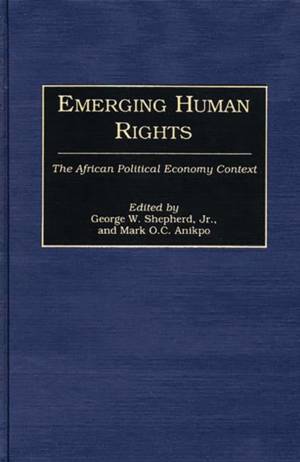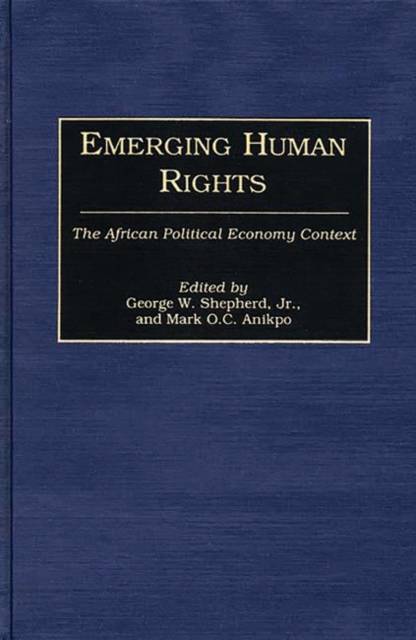
En raison d'une grêve chez bpost, votre commande pourrait être retardée. Vous avez besoin d’un livre rapidement ? Nos magasins vous accueillent à bras ouverts !
- Retrait gratuit dans votre magasin Club
- 7.000.000 titres dans notre catalogue
- Payer en toute sécurité
- Toujours un magasin près de chez vous
En raison de la grêve chez bpost, votre commande pourrait être retardée. Vous avez besoin d’un livre rapidement ? Nos magasins vous accueillent à bras ouverts !
- Retrait gratuit dans votre magasin Club
- 7.000.0000 titres dans notre catalogue
- Payer en toute sécurité
- Toujours un magasin près de chez vous
Description
This book, a collaborative effort by Port-Harcourt University, Nigeria, and the University of Denver, deals with important theoretical considerations about human rights in Africa. The African contribution to the political economic approach to human rights has been especially significant and will continue to grow. This edited collection addressses both theoretical issues and actual case studies of human rights violations in the African context.
Shepherd, a pioneer in African studies, provides a pathbreaking overview of the political economy of African human rights. The volume itself is divided into two sections: theory and issues and violations. In the first section, the contributors consider such theoretical questions as the problems and prospects of creating an equitable world order based on the global right to distributive justice; three generations of African people's rights; the relationship between underdevelopment and human rights violations in Africa; theological perspectives on human rights; and the African experience in human rights issues and violations. The second section addresses specific human rights issues and violations of those rights. Among the situations explored are the impact of revolutionary violence on development, equality, and justice in South Africa, and the effects of militarization, migrants, and refugees on African human rights. Also examined are the African context of human rights development and the impact of Ghanaian black feminism. A comprehensive bibliography completes the volume. The unique perspective provided by African scholars, along with European and American scholars of black Africa, makes this book an important addition to the literature of human rights and African studies.Spécifications
Parties prenantes
- Auteur(s) :
- Editeur:
Contenu
- Nombre de pages :
- 264
- Langue:
- Anglais
- Collection :
Caractéristiques
- EAN:
- 9780313268533
- Date de parution :
- 26-03-90
- Format:
- Livre relié
- Format numérique:
- Genaaid
- Dimensions :
- 156 mm x 234 mm
- Poids :
- 535 g

Les avis
Nous publions uniquement les avis qui respectent les conditions requises. Consultez nos conditions pour les avis.






